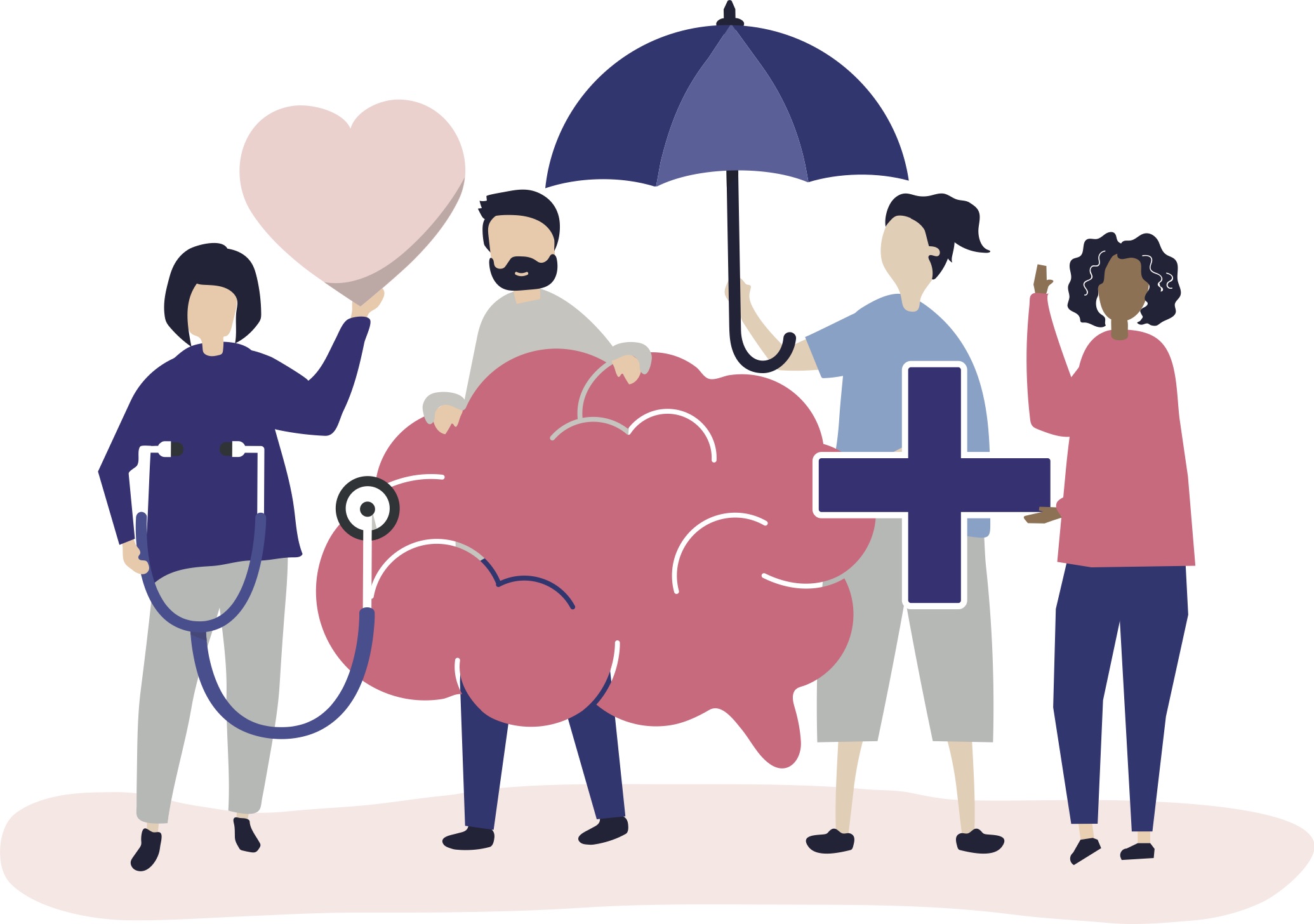As exam time rapidly approaches and we prepare to say goodbye to yet another semester, it’s easy to understand the rising level of stress and anxiety.
Students, for the most part, put everything they have into these formative years where we work to get a degree in order to hopefully gain quality employment once we leave university. However, while trekking through this ad- venture, students often get so caught up in the pressures that are put on them that they forget to do the most important thing: take care of themselves.
Lack of self-care — combined with everything else dropped on student plates— creates a perfect storm just waiting to blow through their lives, leaving a path of destruction the likes of which will take a lot of time and work to rebuild. So why do we put off what really matters?
It is important to note that, according to the Centre of Addiction and Mental Health (CAMH) young people between the ages of 15 and 24 are more likely than any other age group to experience mental illness and/or substance abuse disorders. This is interesting since a large part of the student population fits into this category. On top of already being in an age group more likely to experience problems, university students are also faced with all the added challenges that come along with this new chapter in their lives.
Among the added challenges are financial strain from tuition and other school-related expenses, cost of living, homework load, adulting in general, and for most, holding down one or sometimes two jobs to stay afloat. Add to this the reality that for some students academic scholarships are the only way to help offset some of the costs — thereby making their GPA a top priority — and you have yourself a student weighed down by enormous pressure.
With pressures like these it’s no wonder that mental illnesses in post-secondary students are on the rise. In fact, in the spring of 2019 MacEwan University participated in the National College Health Assessment II. When surveyed on what affected their academic performance in the last 12 months, 43.9 per cent of the students that participated said anxiety, 31.9 per cent said depression, and 51.9 per cent said stress. Of the over 1,000 students that accessed MacEwan’s mental health services in the 2018-19 academic year, the top three presenting concerns were anxiety, depression, and feeling over- whelmed, and 26.8 per cent of students that accessed services reported suicidal ideations. These are high numbers, but to those in university it’s no surprise.
If you are ever in doubt, just take a walk through the halls on the first day of classes and then again near the end. Pay close attention and you will see how people go from looking fresh and ready to learn, to exhausted and weary. By the end of the semester, everyone is simply in survival mode. It is in this survival mode that students forget what is important: self-care.
The bleak information and shocking stats are easier to find than ever, but what does that mean and what exactly is there that students can do to help themselves and others? As far as what the rising stats mean, there might be more than one factor. Part of the reason could be the aforementioned stresses and pressures, but it would be wrong to not mention the changes that have happened in how we look at mental health.
Tory Pino, a registered psychologist here at MacEwan, says “you’re going to see the numbers are going up in terms of support seeking. I look at that as a good thing because it means people who are struggling are asking for help.”
And help they shall receive. MacEwan has several workshops and programs to do just that. First and foremost, students must be attentive to the symptoms and signs of their own mental health, and yes, there is something for that. MacEwan offers a workshop held several times throughout the year called The Inquiring Mind Workshop, which teaches students how to recognize the signs of mental illness, reduce stigma, support friends, and maintain their mental health. You can register for it online at macewanlife.macewan.ca.
If you find you are having a hard time finding motivation, feeling more anxiety or stress than usual, or even just feeling completely overwhelmed, don’t wait or put it off until school slows down, otherwise that might be too late. Instead, find some time for yourself and go seek help. Sometimes a talk with friends can help or just taking a break for the day, but more often than not that isn’t enough, and a mix of different things will serve you better. The Wellness and Psychology Services on campus are always ready to help and they are avail- able Monday to Friday for a drop in on a first come first serve basis in the Student Services office (7-103A). They are happy to give you a 20 to 30 minute initial consultation and can further assist with anything from individual counselling to personalized support plans.
”Listen to your self even though you’re a student and there might be lots of
— Tory Pino
pressures it’s important to find balance… you need to have some fun here.”
If you feel you need other options to complement the plan you already have in place, know that there are more programs available, all of which can be found throughout the school and on macewan.ca under Services. Among them is Doggo Time, run by SAMU, or MacEwan’s PAWSS program, both great ways to relax and get out of your head if you’re an animal lover, as well as myHealth, a non-credit course offered on Blackboard at no cost, where you can build your own wellness toolbox.
Then, of course, there are the everyday things that one can do that may not in and of itself solve your mental health issues on their own, but can certainly help prevent and even accelerate your progress. One of these is physical activity, and lucky for students here at MacEwan we have access to a great facility. If you are enrolled in six or more credits, the use of the gym is included in your tuition and access is as easy as bringing your student card and gym attire. If you’re looking for a group workout to motivate you, several free and paid classes are also offered, such as kickboxing if students need to work off some of their school frustrations or yoga if students are seeking calm and inner zen. No matter what you’re into, there are plenty of choices and according to several health sites, exercise has been proven to help mood and reduce anxiety by releasing chemicals like endorphins and serotonin.
Always important but often forgotten self-care is more than just therapy and exercise. It can be as simple as a lazy Sunday in sweatpants watching your favourite movies, a long bath with your favourite music, some meditation or pretty much anything that brings you joy and reminds you that life is more than just books, homework, and exams. “Listen to your self even though you’re a student and there might be lots of pressures it’s important to find balance … you need to have some fun here.” Pino said; a statement that students should remind themselves of every day.
So whether you’re feeling great right now or walking around like a zombie from The Walking Dead, just remember that help is available, there is a light at the end of the university tunnel and you are loved. Along the same lines, if you see someone who looks like they are having a hard time, knowing who and where to direct them can be very helpful. No one knows the battle someone else is fighting and you can never know when something as simple as a smile or a hello turns someone’s whole day around. After all, students are all in this adventure together so why not share a sense of camaraderie and community and get through this chapter in one piece, physically and emotionally.





0 Comments